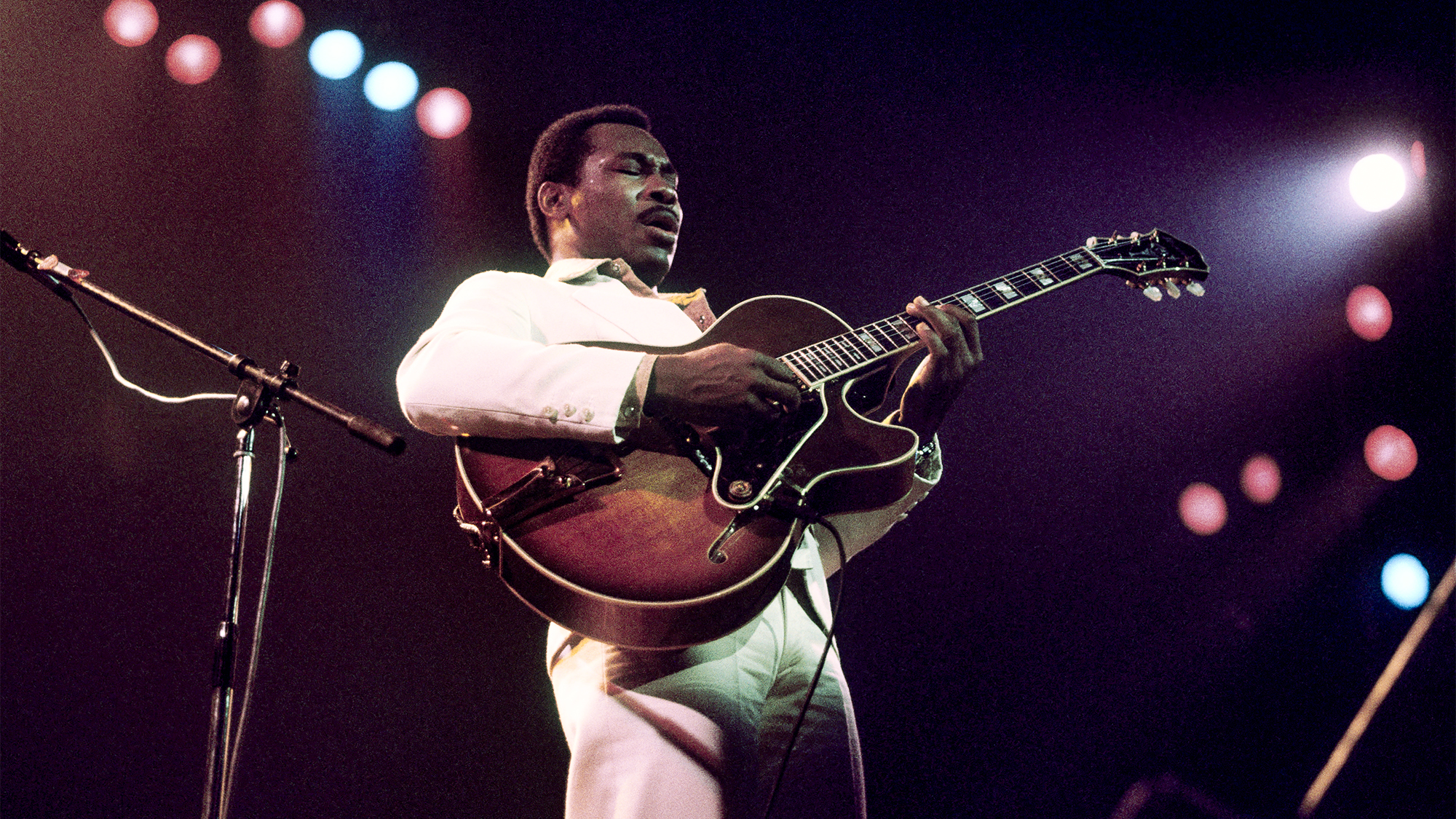Guns N' Roses' Richard Fortus Develops New Pickup Design
The GN'R guitar veteran reveals what went on behind the curtain at Gretsch with his long-awaited signature Falcons.

All the latest guitar news, interviews, lessons, reviews, deals and more, direct to your inbox!
You are now subscribed
Your newsletter sign-up was successful
White Falcons were at the top of Gretsch’s pecking order when they were released in 1955. With their hot-rodded design these rare birds represented the pinnacle of the Brooklyn firm’s craftsmanship in the golden era. They were made to stand out from the crowd.
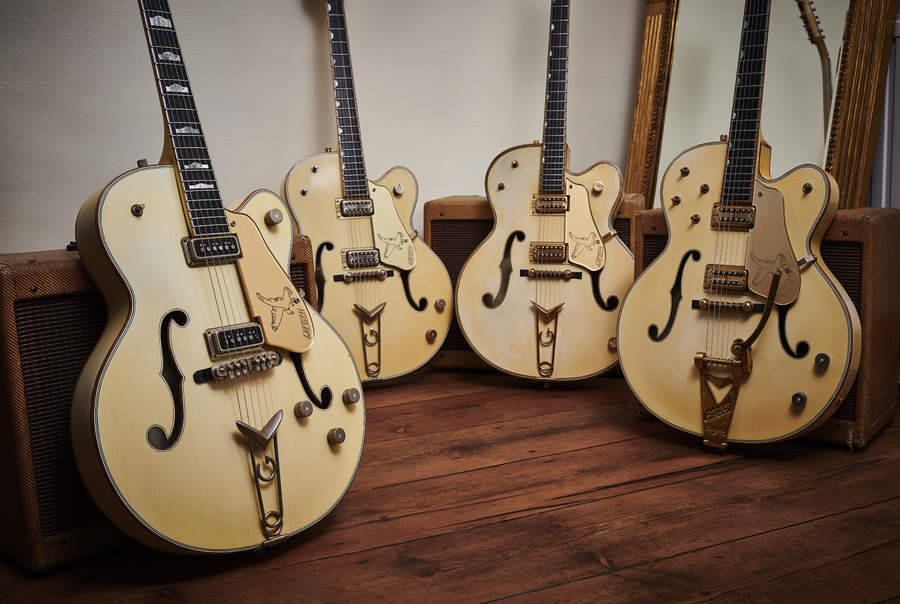
Originally intended as a one-off display centerpiece for the 1954 NAMM trade show, the White Falcon ended up turning so many heads that by the following year Gretsch had put it into regular production designated as the model 6136.
Since then, the Gretsch Falcon has picked up its fair share of admirers and is famously associated with several name guitarists, including Neil Young and John Frusciante. A White Falcon devotee for many years now, Guns N’ Roses’ longest-serving guitarist Richard Fortus has been honoured with his own signature models.
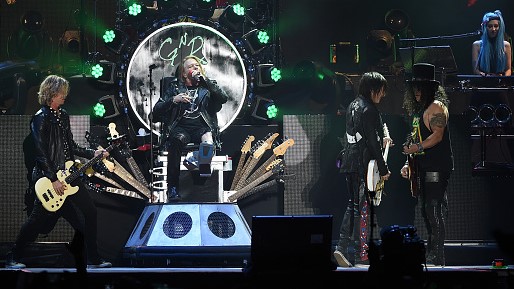
But these are no ordinary Falcons. Far from sticking to a formula Gretsch and Fortus dove deep in their quest for perfect tone and surfaced with two unique signature Falcon designs: the Vintage White, Bigsby-equipped G6636T-RF, and the Black, non-vibrato G6636-RF. Both models feature a three-way toggle switch, master volume and master tone controls, “U”-shaped maple neck and 12”-radius ebony fingerboard with 22 medium jumbo frets.
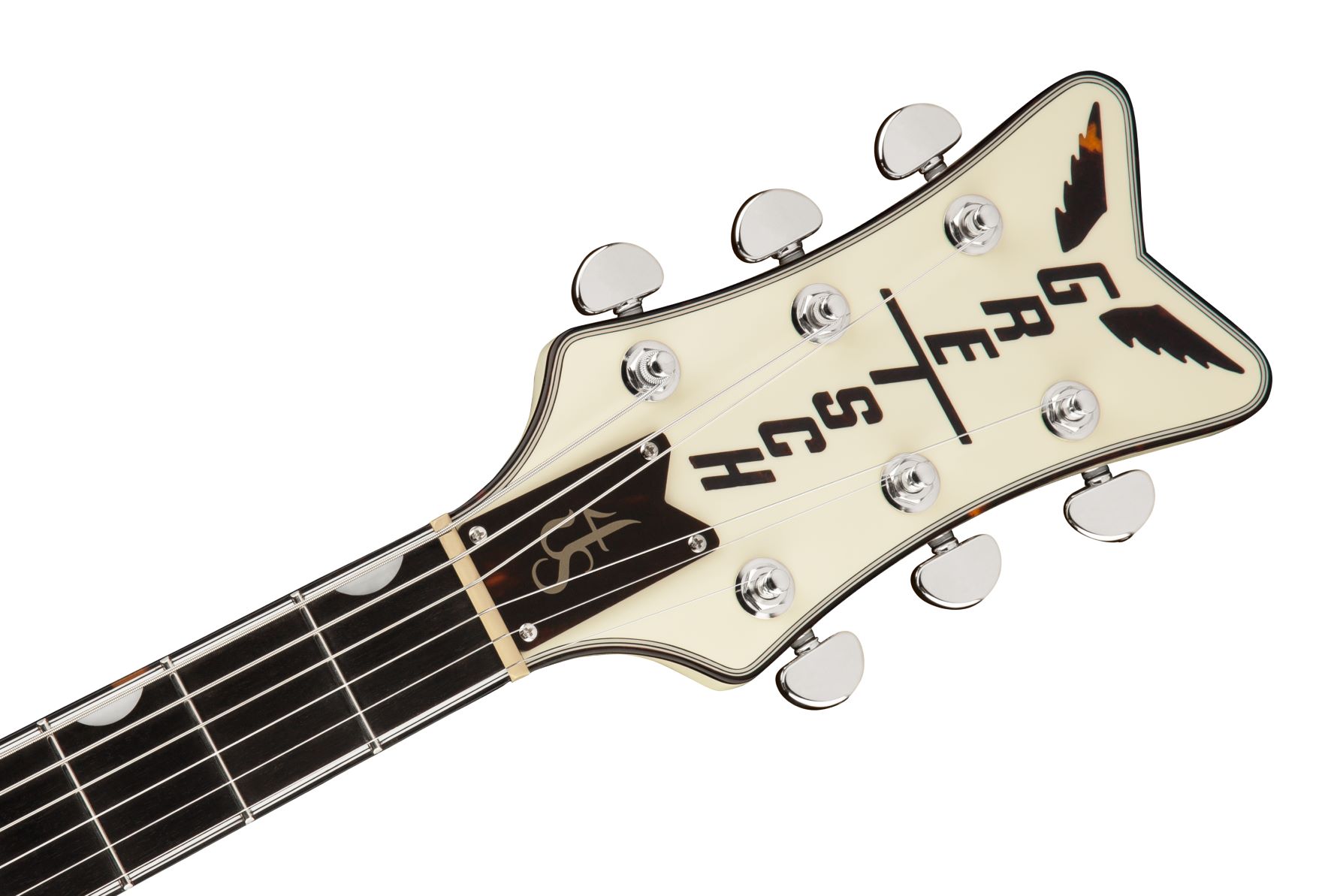
Gretsch Falcons are, traditionally, a hollowbody electric guitar. And while Fortus has famously used the fully hollow Gretsch Players Edition Falcon on stage with Guns N’ Roses for some time, his new signature models have advanced the design to include a feedback-busting center block.
Additionally, Fortus’ new signature models feature a '60s-style double-cutaway body, enabling easier navigation of the upper frets. “I’m really excited about what we came up with,” says Fortus. “I’m so excited about these pickups – they really sound incredible.”
All the latest guitar news, interviews, lessons, reviews, deals and more, direct to your inbox!
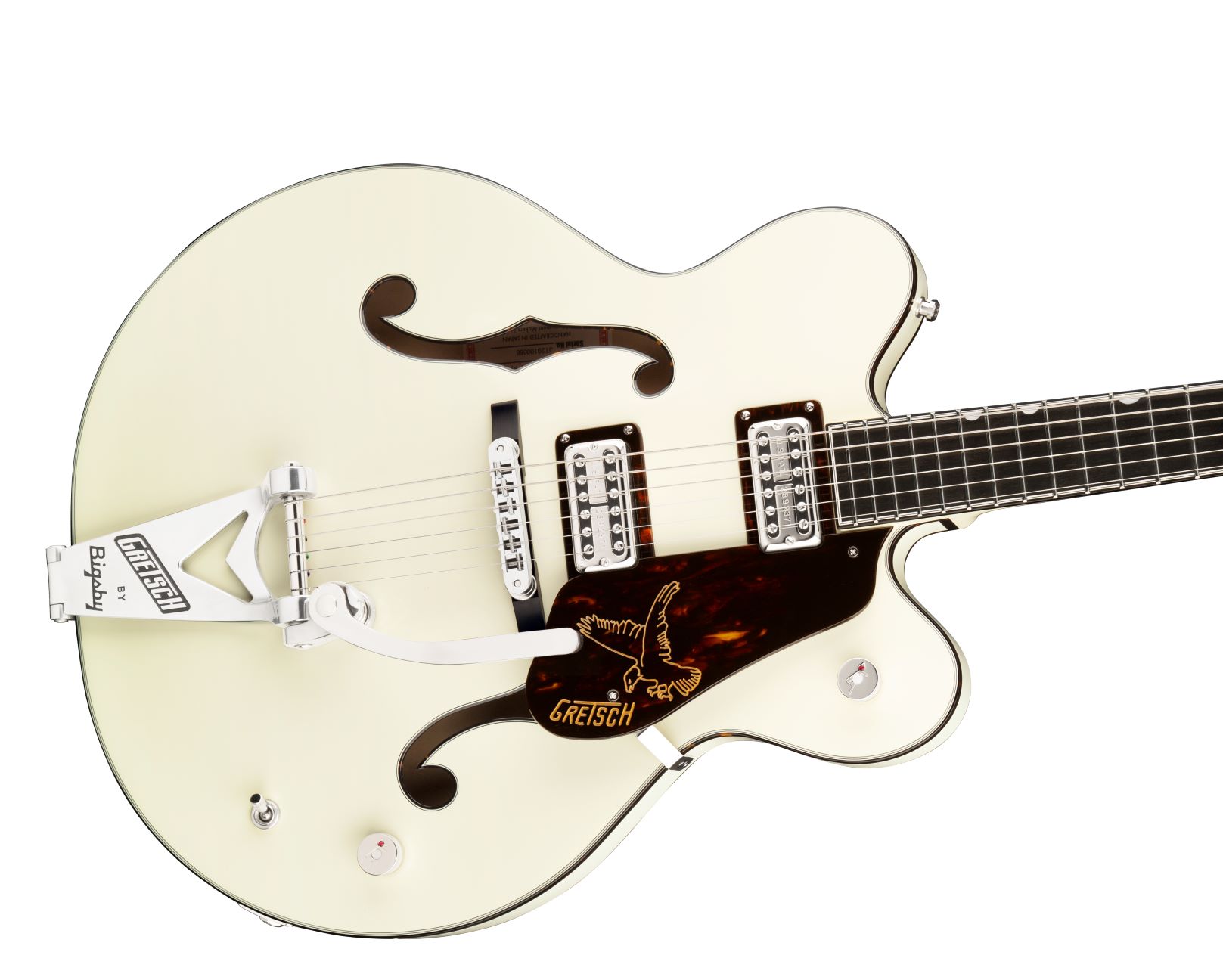
Gretsch were in rehearsals with us, and they were winding pickups on the spot while I’m trying them out
Richard Fortus
The pickups in Fortus’ new Falcons are the result of some painstaking research, much of which was carried out during Guns N’ Roses’ rehearsals. “Earlier this year, Gretsch were in rehearsals with us, and they were winding pickups on the spot while I’m trying them out,” Fortus tells us.
“We had a cycle of four different guitars, as well as my normal live guitars to compare them to. Plus, when you’re on in-ears, you’re listening under a microscope. You can hear every detail. Our front-of-house engineer was in the other room in a control room environment, so he was listening too and giving us feedback. We’d go back and forth zeroing in on the perfect tone. Gretsch were amazing. They were as tenacious as I was in trying to find the perfect blend.
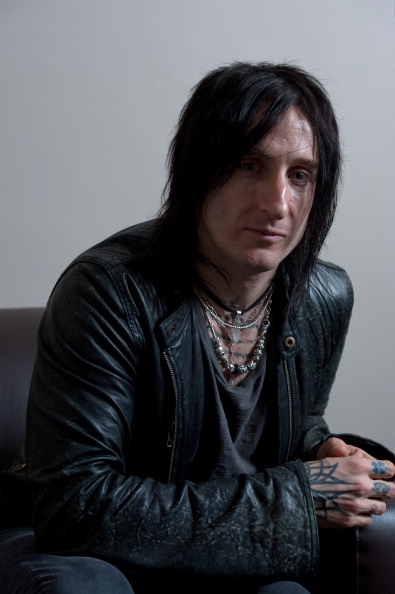
We came up with a construction which is a hybrid of a vintage-style PAF and a Filter’Tron
Richard Fortus
“We came up with a construction which is a hybrid of a vintage-style PAF and a Filter’Tron. It’s a very unique-sounding pickup, but it gives me all of the detail from a Filter’Tron I want. When you roll the volume down to around seven, you’re very much in classic Filter’Tron territory, and as you bring the volume up you get more of that round PAF thing. It’s about the same output as a vintage PAF.
"The more windings you put on a pickup, the hotter it becomes, and also the more mid-focused it becomes. And that’s sort of the opposite of what I’m going for. But the thing about lower output pickups is that when you goose them going into the amp by boosting the signal, they can sound huge.
We came up with a construction which is a hybrid of a vintage-style PAF and a Filter’Tron
Richard Fortus
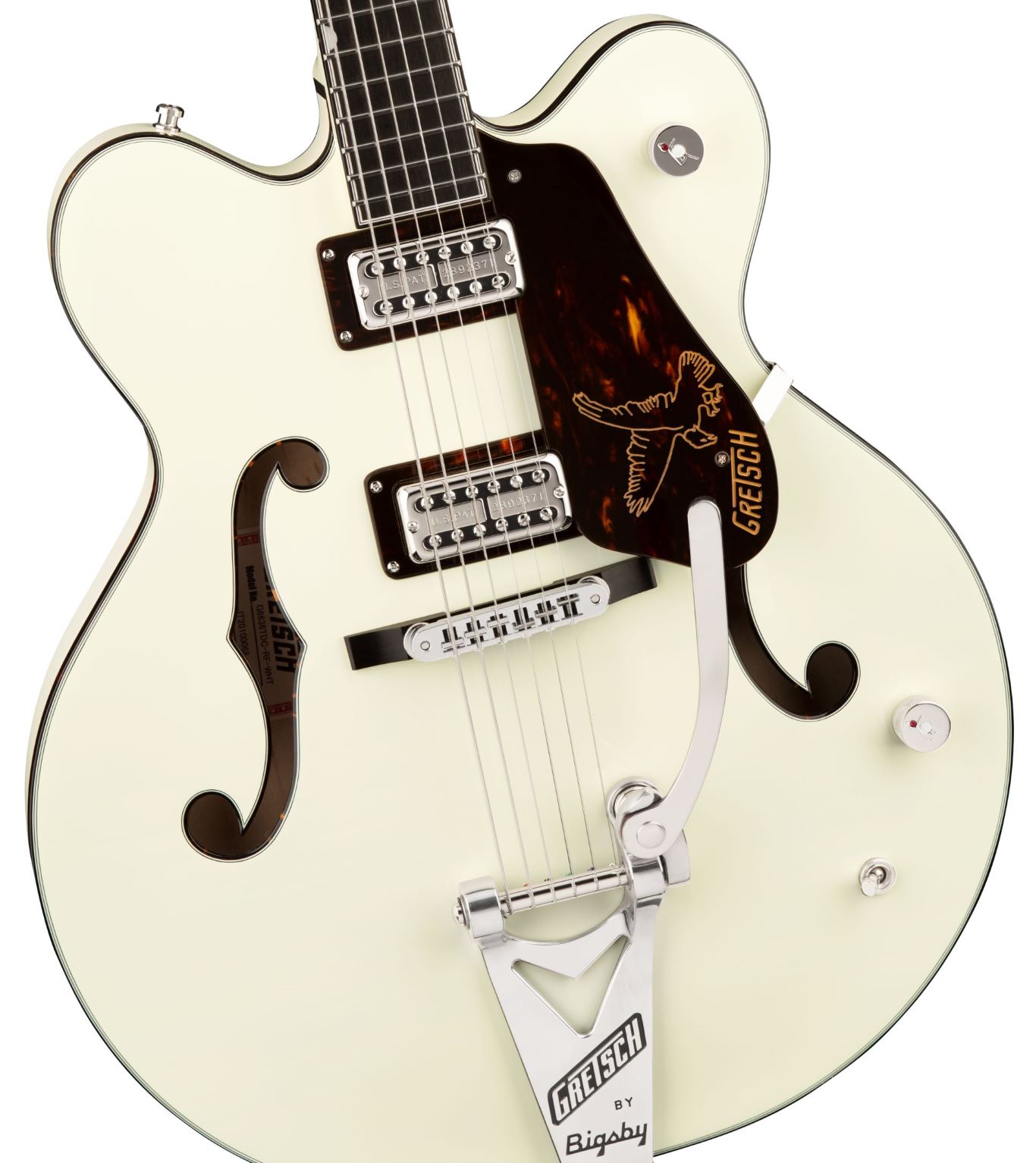
Slash and I are always riding the volume controls. We rely on that a lot
Richard Fortus
“Slash and I are always riding the volume controls. We rely on that a lot. So, another thing I did with Gretsch that was really important was to get the signal to clean up correctly.
"We had been experimenting and experimenting with different treble bleed caps and eventually found the perfect one. But the linear taper pots don’t clean up in the same way. I use audio taper in my own guitars, so that’s what Gretsch agreed to put in my signature Falcons. And it makes all the difference.”
Read more about Richard Fortus' history with Gretsch here
Rod Brakes is a music journalist with an expertise in guitars. Having spent many years at the coalface as a guitar dealer and tech, Rod's more recent work as a writer covering artists, industry pros and gear includes contributions for leading publications and websites such as Guitarist, Total Guitar, Guitar World, Guitar Player and MusicRadar in addition to specialist music books, blogs and social media. He is also a lifelong musician.

